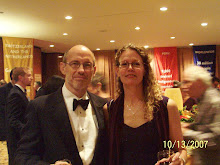Bioterrorism prevention not possible with military means
Dear Editor,
The Washington Times usually has outstanding coverage of national security and foreign policy issues facing Americans. That’s why its inadequate coverage of the Commission on the Prevention of Weapons of Mass Destruction Proliferation and Terrorism 3 days after the release of their report is so disturbing. The Washington Times gave this profoundly important report less than 7 narrow column inches in it’s “Washington in 5 minutes” page.
There is no other terrorist threat that deserves more attention than the threat of biological weapons and the measures needed to truly prevent such horrific means of mass murder.
There are at least 4 characteristics of biological weapons that make them such a game changer when protecting America’s security, freedoms and prosperity.
First, the technologies used to make biological weapons are exponentially increasing in power and global availability while falling in costs.
Second, most biological weapons form a new classification of weaponry. They replicate when used instead of being used up when fired.
Third, the size of biological weapons means they can be created and dispersed with minimal infrastructure and a nearly infinite array of undetectable delivery mechanisms. A bioweapon capable of targeting a specific ethic group with a similar genetic profile can be created in a basement bathroom sized lab and delivered by spray bottles.
Last, defending against such weaponry is virtually impossible without first developing every possible pathogen imaginable while also developing a massive manufacturing and distribution infrastructure that could not be easily be targeted or debilitated by increasingly available conventional weapons.
The new report from the congressionally mandated bi partisan Commission on the Prevention of Weapons of Mass Destruction Proliferation and Terrorism (created last spring as one of the recommendations of the 9/11 Commission) concluded in the opening sentence of the executive summary: “Unless the world community acts decisively and with great urgency, it is more likely than not that a weapon of mass destruction will be used in a terrorist attack somewhere in the world by the end of 2013.”
The six-month study headed by former Senators Bob Graham (D-FL), and Jim Talent (R-MO) correctly faulted the Bush administration for failing to devote the same degree of high-level attention and resources to the threat of bioterrorism as it has to nuclear threats, but, the panel’s 13 recommendations falter by suggesting it’s possible to adequately secure dangerous pathogens and tighten oversight of high-containment laboratories by strengthening international organizations. Even with unlimited access to every nation, every laboratory and every cave in the world international organizations will have difficulty in stopping a determined bioterrorist group. Such unlimited access wouldn’t be accepted by every nation and even if it were it still wouldn’t protect us against natural occurring biological pathogens of equal or greater capacity for mass death and suffering. Even a Nazi like intrusive presence of international weapons inspectors would be unable to stop a cleaver and committed group from creating the perfect biological weapon.
The panel’s recommendations for improved bioforensic capabilities and strengthening international organizations would be useful in responding to biological mass murder, but ‘preventing’ a bioterrorist event will require two other approaches not mentioned by the Commission.
First, we must stop making so many enemies in the world. This will require powerful international institutions capable of creating a climate of justice, shared security and protection of basic human rights listed in the Universal Declaration of Human Rights. Such an environment would give poor people as well as the rich a direct incentive and the capacity to reporting any suspicious actors or actions.
Second, new international institutions endowed with the capacity of enforcing globally agreed upon standards of control, intelligence gathering and incident reporting must be created. Without adequate funding and enforcement capacity, such institutions would be as anemic as the UN is today in stopping transnational threats.
In summary, we need to make more friends, less enemies, and globally enforceable world laws.


0 Comments:
Post a Comment
<< Home